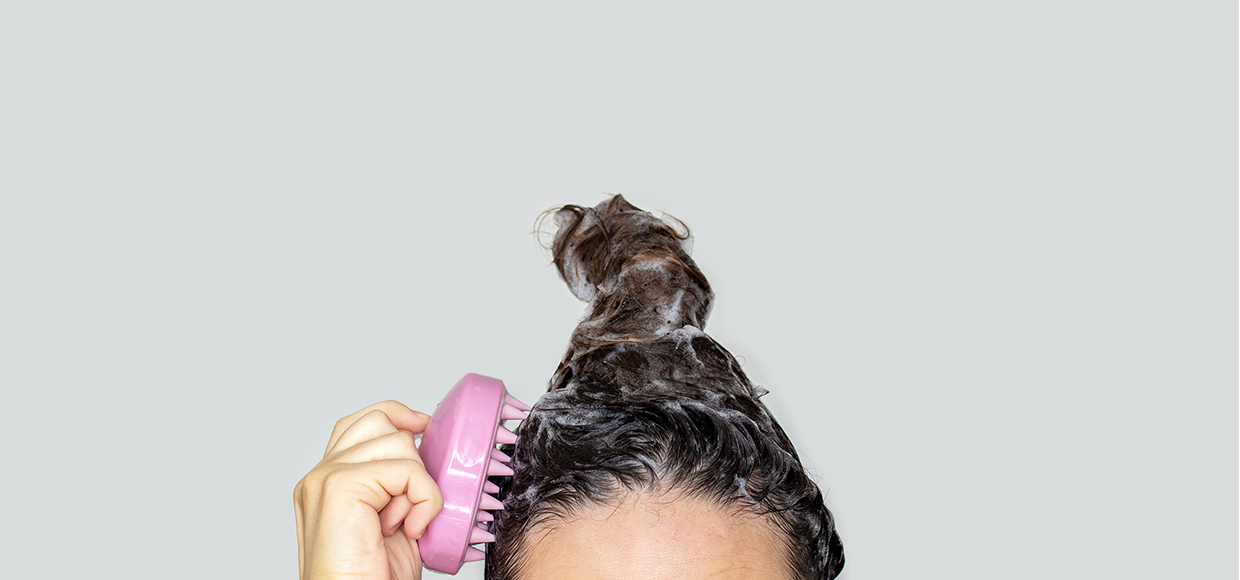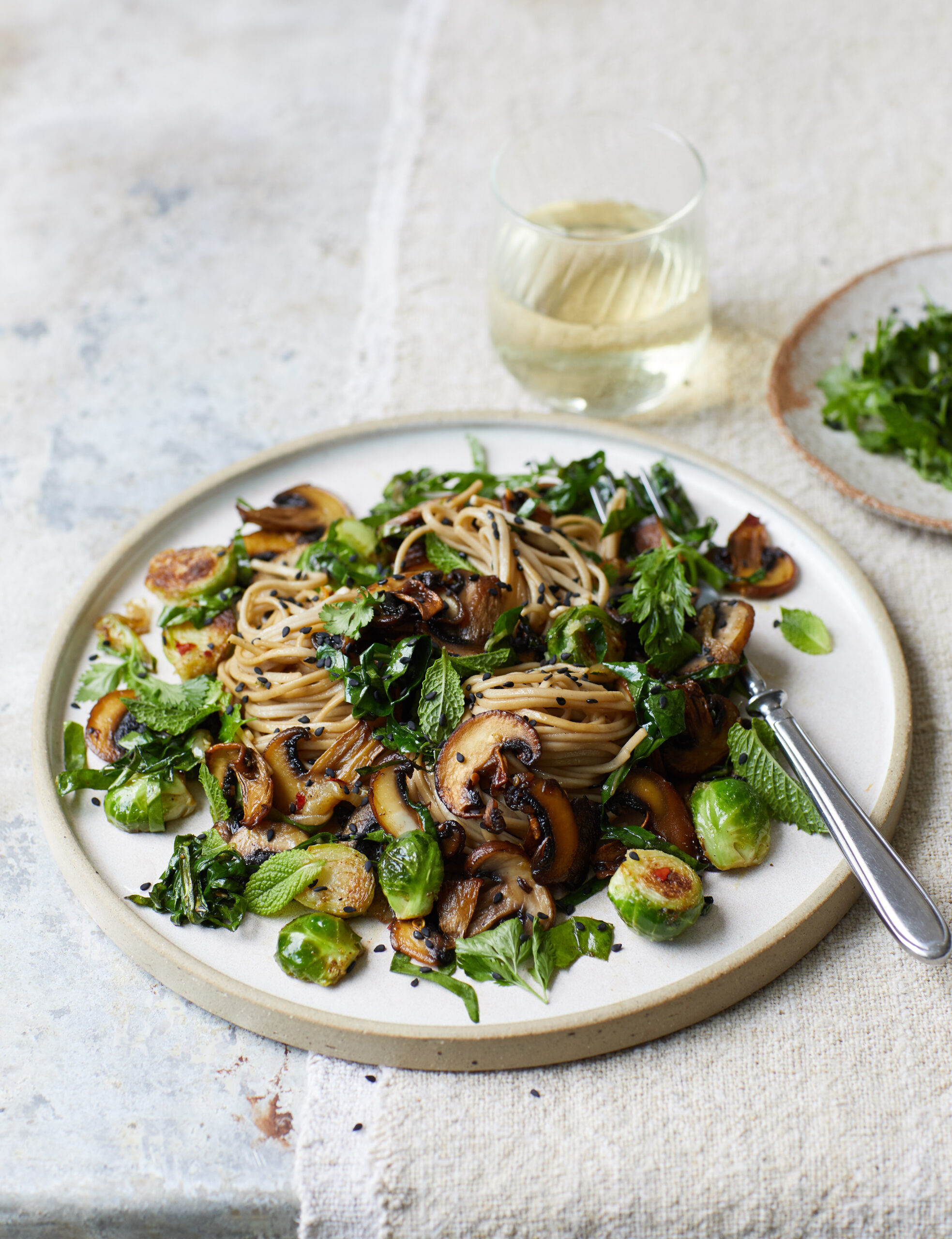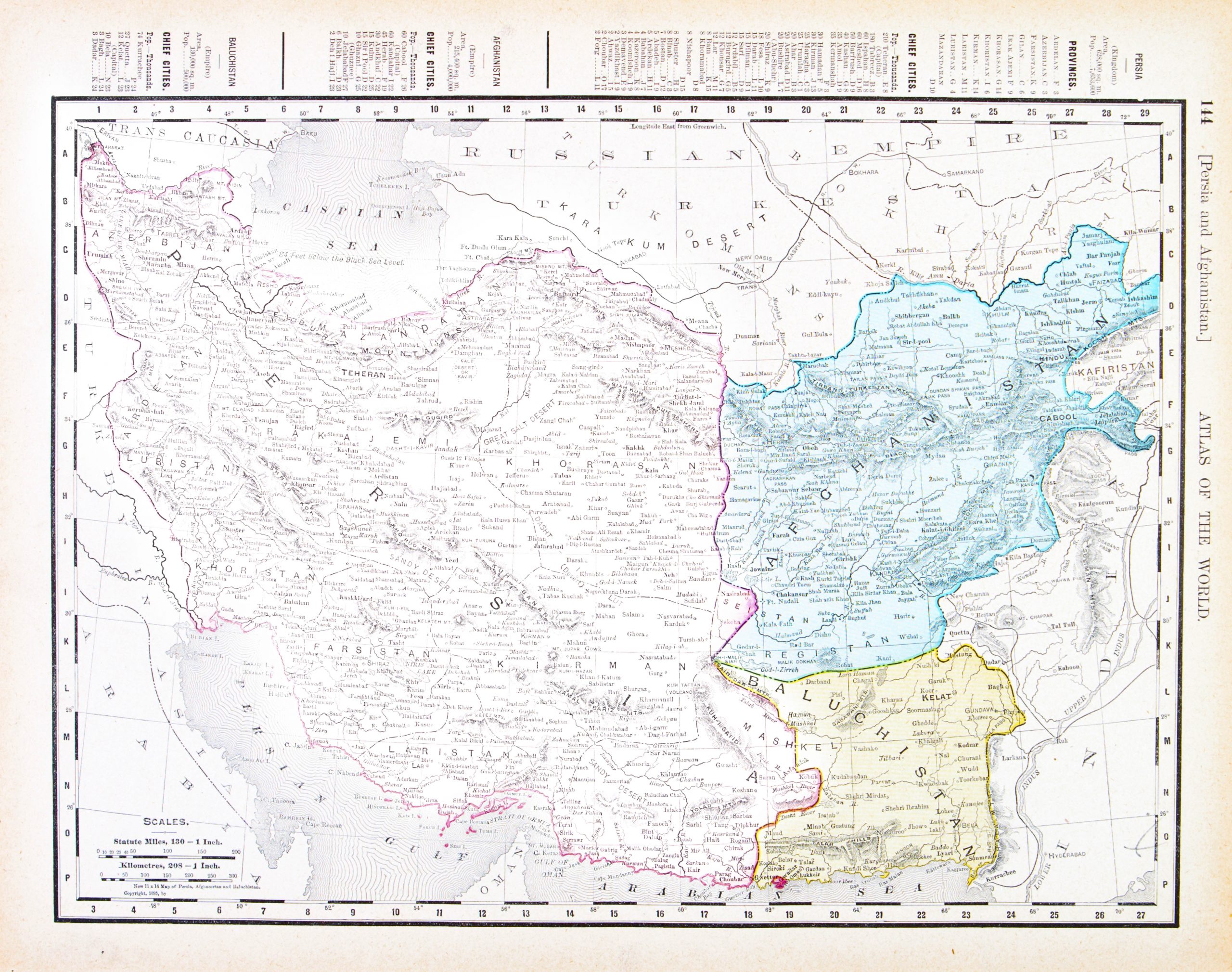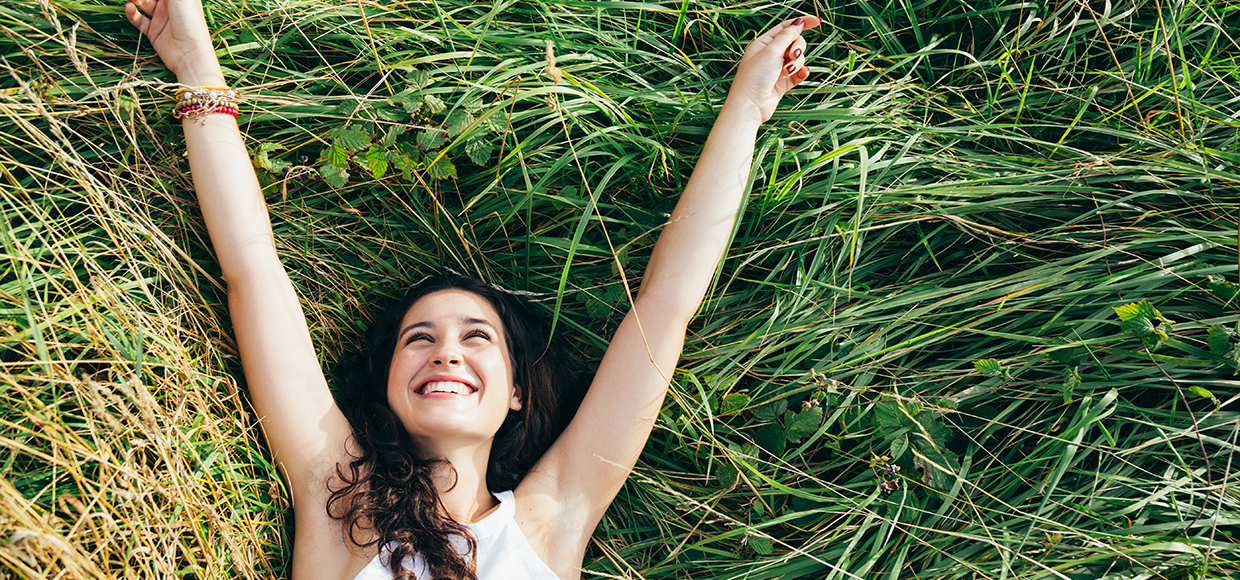Healthy hair starts at the base, your scalp condition is so important for luscious locks.
Scalp health is fast becoming a beauty buzzword, and for good reason. The condition of hair depends on the health of the skin that covers your head – they are inextricably linked. Every hair grows through follicles which surface on your scalp. Sebum (aka oil) is produced by each follicle through the sebaceous gland. Some people produce more sebum than others.
Different times of the month, year and life stage can also affect sebum production. You might notice that on some days of the month, your hair is oilier than others, thanks to the activation of testosterone increasing the production of sebum. Some call this ‘period hair’ and if this is what happens for you, we recommend cutting back the frequency of washing during this time of the month, especially if you do this daily, to every second or third day. Use a dry shampoo in between. Got a hairy hairbrush? The oil from the strands in the bristles will be adding oil to your hair so keep your brush hair free, ironically.
You also know something is big when a celebrity jumps on it. Rita Ora has just launched haircare brandTypeBea with the entrepreneur who started Vida Glow, Anna Lahey. These products promise to help condition hair for growth and are ‘clean’ (without nasty ingredients) to protect scalp health.
We spoke with trichologist, Chelcey Salinger and got to the loose ends of scalp health:
What are the most common causes of an unhealthy scalp?
“Shampooing too often or not enough depending on scalp type and using products with the incorrect pH. Over-drying or heating the scalp (which will remove moisture from the scalp). These factors will present on the head as inflammation, scaling, itching and at the most extreme – infection. When the scalp isn’t healthy, hair isn’t either and this will become dry and brittle and maybe even break easily.”
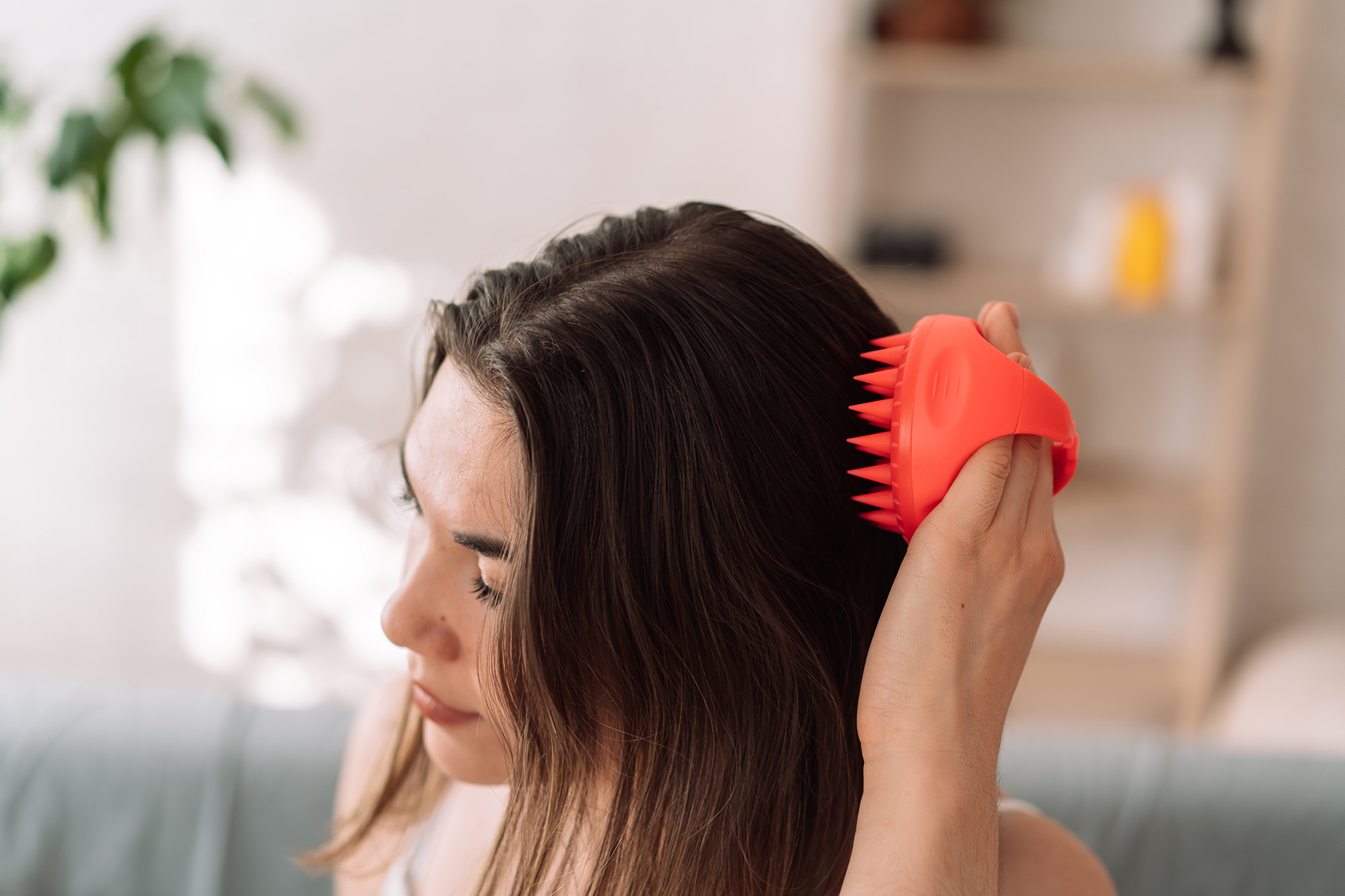
What are the best remedies to use?
“Using products with the right pH (approximately pH of 5.5), and limit the use of heat styling tools.”
Does what you eat affect your scalp?
“Yes. Some scalp issues like dandruff and seborrheic dermatitis occur more frequently in people who consume refined sugar and sugar-sweetened beverages. Consumption of anti-oxidants reduces inflammation. Consuming a high-fibre diet is also vital for good hair health as it helps optimise the gut microbiome, which has a flow-on effect on our immune systems.”
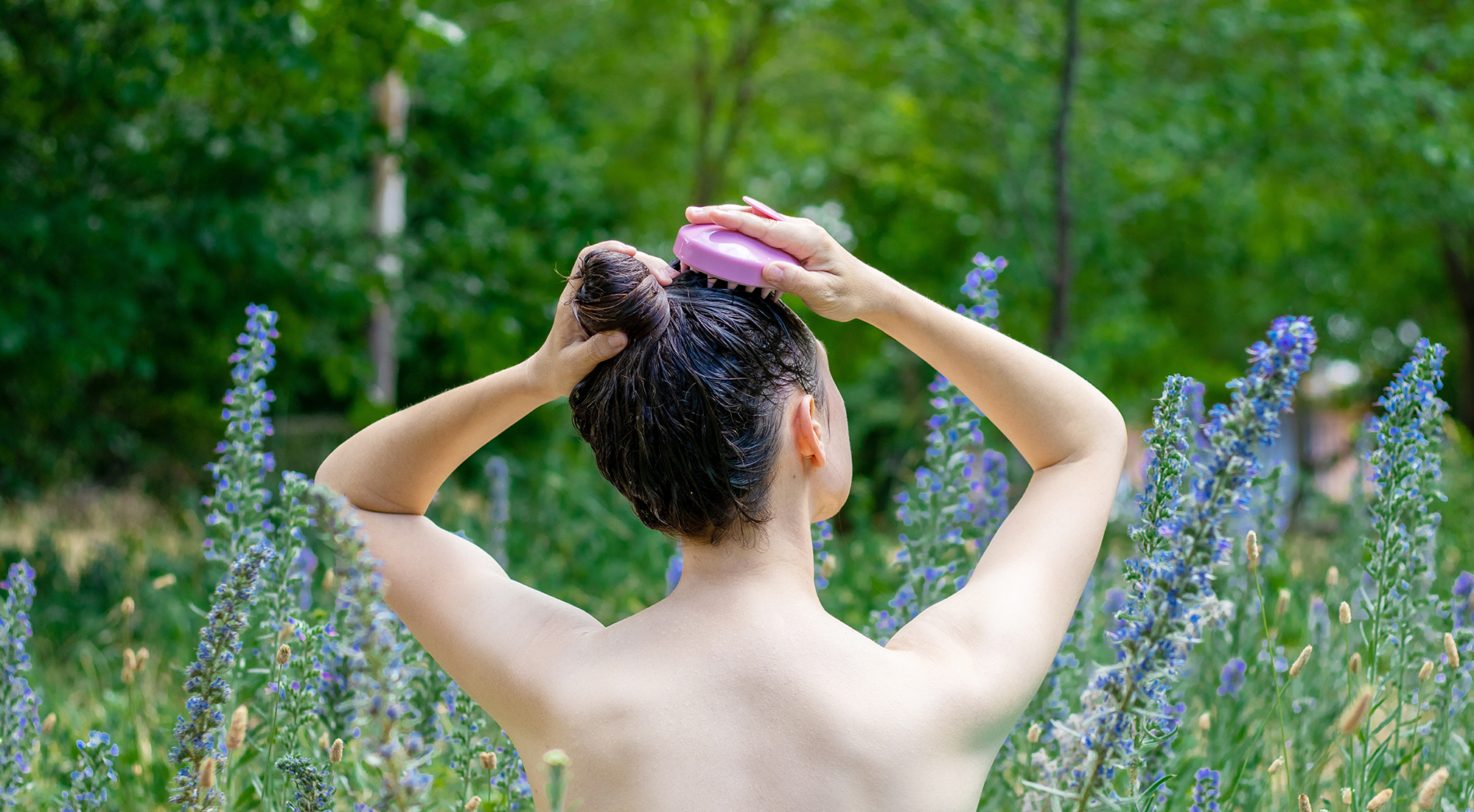
What conditions can affect hair growth?
“Pattern hair loss (genetic thinning), autoimmune hair loss problems like frontal fibrosing alopecia, lichen planopilaris, alopecia areata, and problems caused by excessive tension on hair (traction alopecia), can impact hair growth.”
Menopause can cause women to start balding – why is that?
“If someone has the genetic predisposition, then as oestrogen drops through menopause, androgens have a greater influence on the hair. It is a strong androgen (called dihydrotestosterone) in the skin that causes the hairs to become finer and thin in the “genetic” area. Other factors include inflammation and the influence of oxidants (free radicals) on the cells. Trichologists also frequently see a hair loss problem called frontal fibrosing alopecia, which is a scarring type of hair loss that tends to occur after menopause on the front hairline and eyebrows. This also relates to the reducing oestrogen because reduced oestrogen levels reduce vitamin D levels. Vitamin D is highly involved in this particular type of hair loss.”
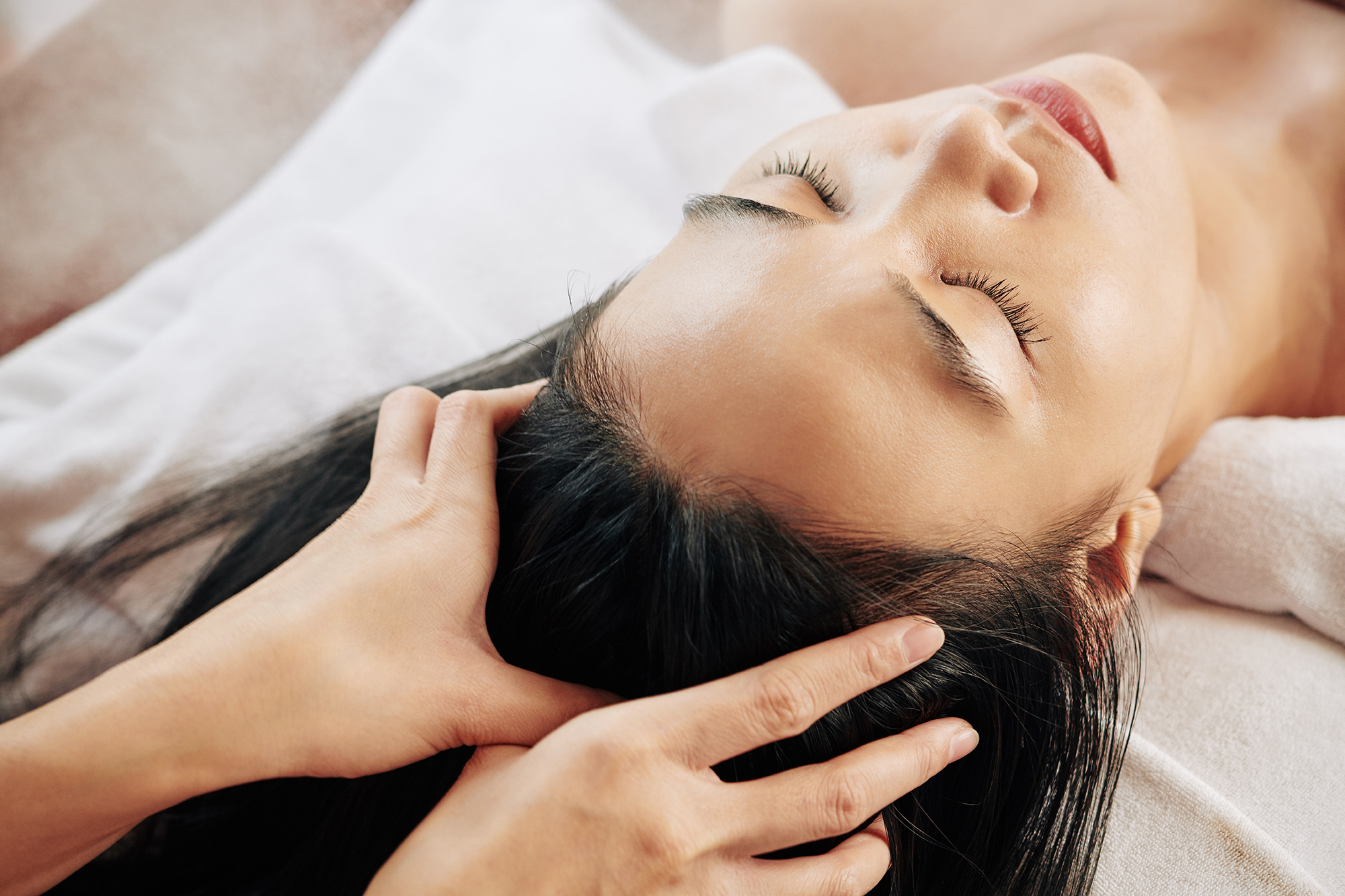
Can age affect scalp health?
“Yes. Age can make the hair follicles slightly finer. The scalp skin generally becomes thinner with reduced collagen.”
What are some inexpensive things we can do to help scalp health?
“Massage increases blood flow to the scalp and can benefit hair. A healthy diet and exercise reduce inflammation. Using a shampoo with a pH of 5.5 helps. Also, wearing a hat to avoid hair and scalp damage from UV.”


